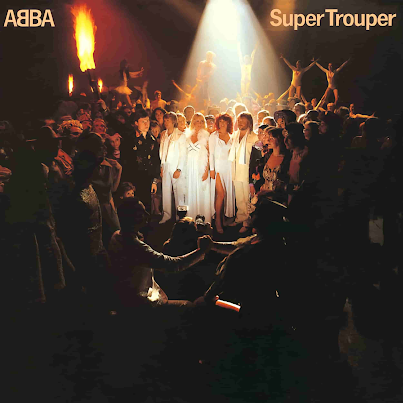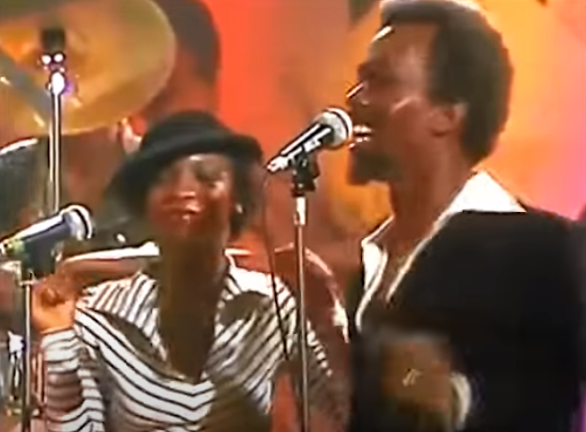Why ABBA's 1980 original "Super Trouper" had no American disco elements after the disco backlash
No pulsating kick sound of the bass drum during the first half of the chorus for the third time"
Their 1980 original is too plain with ordinary europop beats that doesn’t make me want to dance. It didn't move me. Plus it was American disco enough. It would've needed more work.
Here is the story about why it had no American disco elements after the disco backlash:
Understanding ABBA’s “Super Trouper” and the Disco Backlash
Historical Context of Disco in the Late 1970s
The late 1970s witnessed a significant cultural phenomenon known as disco, characterized by its upbeat tempo, danceable rhythms, and orchestral arrangements. However, by the early 1980s, this genre faced a backlash. The backlash was fueled by various factors including a perceived over-commercialization of disco music, a growing discontent among rock fans, and events such as the infamous Disco Demolition Night in 1979 which symbolized a rejection of disco culture.
ABBA’s Position in the Music Industry
ABBA was one of the most successful pop groups during the height of disco’s popularity. Their music often incorporated elements typical of disco but also blended with pop and rock influences. By 1980, when “Super Trouper” was released, ABBA had already established their sound and brand identity that transcended any single genre.
The Creation of “Super Trouper”
When ABBA recorded “Super Trouper,” they were aware of the changing musical landscape. The group aimed to create a song that resonated with their audience while also reflecting their artistic evolution. The decision to avoid overt disco elements can be attributed to several factors:
Changing Audience Preferences: As public sentiment shifted away from disco, artists began to adapt their styles to maintain relevance. ABBA recognized that their fan base was diversifying and sought to appeal to broader tastes.
Musical Evolution: By this time, ABBA had developed a distinct sound characterized by rich harmonies and melodic structures that did not rely heavily on the rhythmic patterns typical of disco music. They focused more on crafting songs that showcased their vocal strengths and songwriting prowess.
Production Choices: The production techniques used in “Super Trouper” leaned towards pop rather than disco. The arrangement featured traditional instruments like guitars and pianos alongside synthesizers but avoided the four-on-the-floor beat commonly associated with disco tracks.
Cultural Sensitivity: Given the backlash against disco culture at that time, ABBA may have consciously chosen to distance themselves from it in order to avoid alienating potential listeners who were disenchanted with the genre.
Artistic Integrity: ABBA’s members—Agnetha Fältskog, Björn Ulvaeus, Benny Andersson, and Anni-Frid Lyngstad—were committed to evolving as artists rather than being pigeonholed into one specific style or trend.
ABBA’s “Super Trouper” did not incorporate American disco elements due to an awareness of shifting musical trends following the backlash against disco culture. The group’s desire for artistic evolution led them to focus on creating music that aligned more closely with pop sensibilities while still retaining their unique sound.
Now Why did ABBA's “Super Trouper” lean towards '80s Europop rather than American '70s disco?
Here is the answer:
Understanding ABBA’s “Super Trouper” and the Disco Backlash
Historical Context of Disco in the Late 1970s
The late 1970s witnessed a significant cultural phenomenon known as disco, characterized by its upbeat tempo, danceable rhythms, and orchestral arrangements. However, by the early 1980s, this genre faced a backlash. The backlash was fueled by various factors including a perceived over-commercialization of disco music, a growing discontent among rock fans, and events such as the infamous Disco Demolition Night in 1979 which symbolized a rejection of disco culture.
ABBA’s Position in the Music Industry
ABBA was one of the most successful pop groups during the height of disco’s popularity. Their music often incorporated elements typical of disco but also blended with pop and rock influences. By 1980, when “Super Trouper” was released, ABBA had already established their sound and brand identity that transcended any single genre.
The Creation of “Super Trouper”
When ABBA recorded “Super Trouper,” they were aware of the changing musical landscape. The group aimed to create a song that resonated with their audience while also reflecting their artistic evolution. The decision to avoid overt disco elements can be attributed to several factors:
- Changing Audience Preferences: As public sentiment shifted away from disco, artists began to adapt their styles to maintain relevance. ABBA recognized that their fan base was diversifying and sought to appeal to broader tastes.
- Musical Evolution: By this time, ABBA had developed a distinct sound characterized by rich harmonies and melodic structures that did not rely heavily on the rhythmic patterns typical of disco music. They focused more on crafting songs that showcased their vocal strengths and songwriting prowess.
- Production Choices: The production techniques used in “Super Trouper” leaned towards pop rather than disco. The arrangement featured traditional instruments like guitars and pianos alongside synthesizers but avoided the four-on-the-floor beat commonly associated with disco tracks.
- Cultural Sensitivity: Given the backlash against disco culture at that time, ABBA may have consciously chosen to distance themselves from it in order to avoid alienating potential listeners who were disenchanted with the genre.
- Artistic Integrity: ABBA’s members—Agnetha Fältskog, Björn Ulvaeus, Benny Andersson, and Anni-Frid Lyngstad—were committed to evolving as artists rather than being pigeonholed into one specific style or trend.
Conclusion
In summary, ABBA’s “Super Trouper” did not incorporate American disco elements due to an awareness of shifting musical trends following the backlash against disco culture. The group’s desire for artistic evolution led them to focus on creating music that aligned more closely with pop sensibilities while still retaining their unique sound.





.jpg)

Comments
Post a Comment